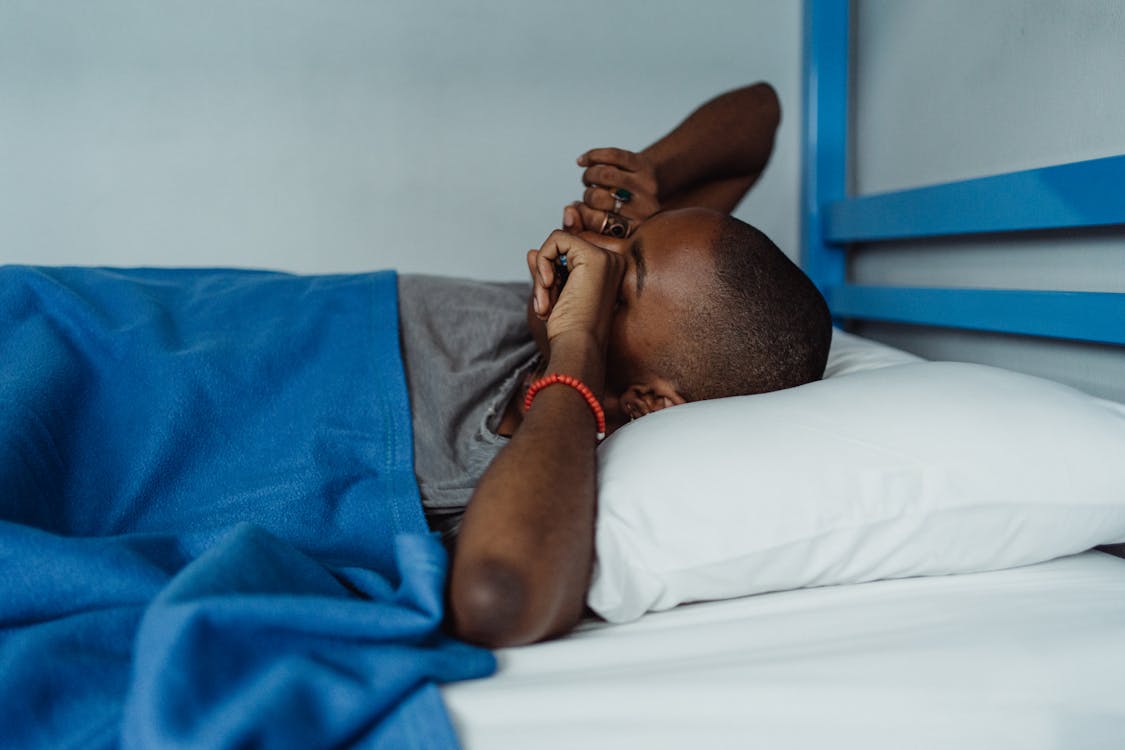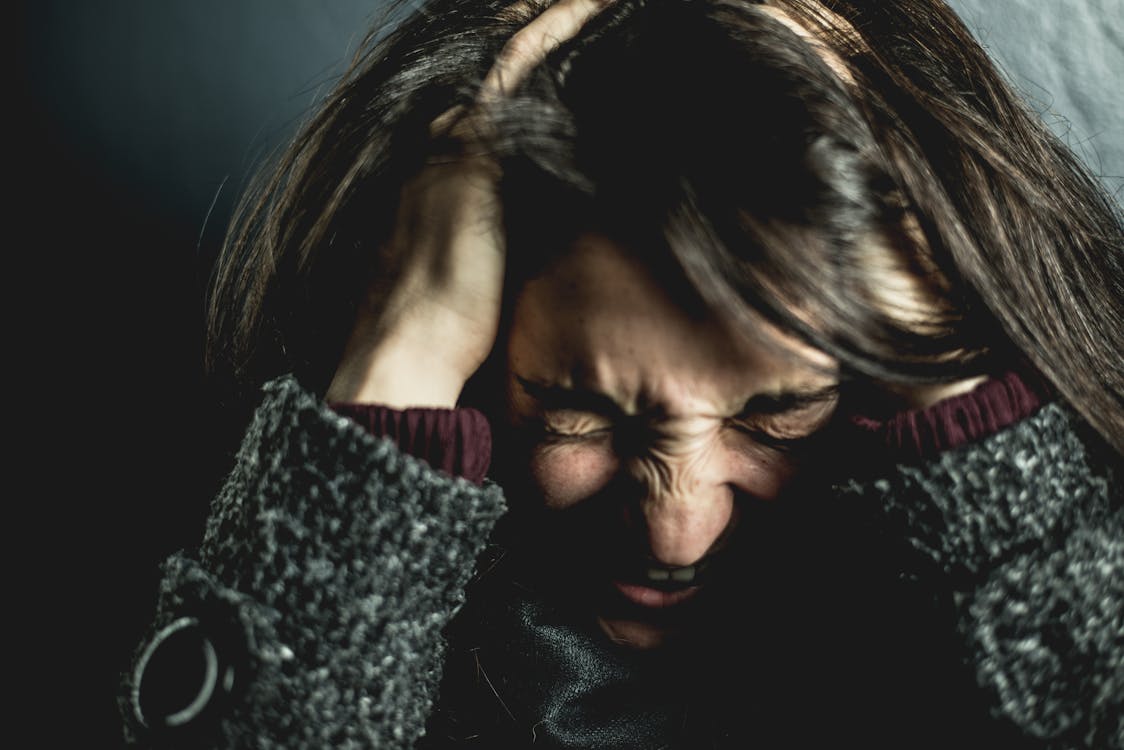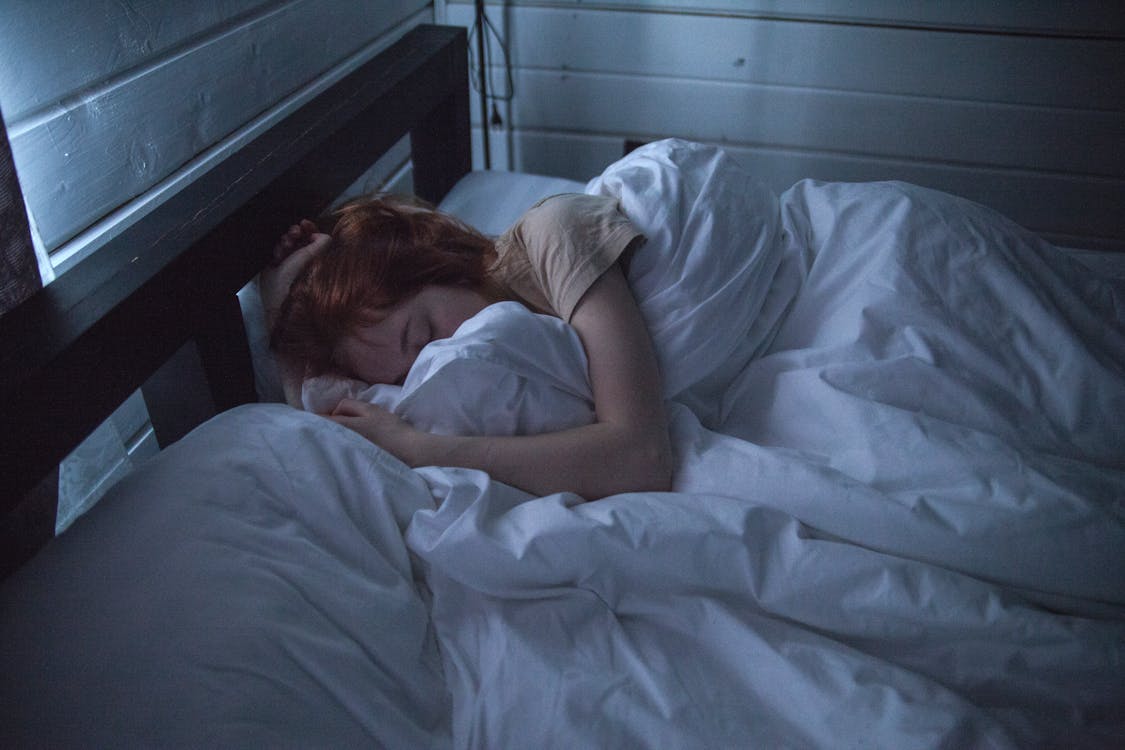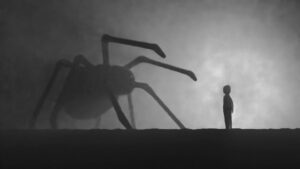
It can be a terrifying experience to wake up gasping for air anxiety. Some people may feel as though they’re dying, which can only exasperate those anxious feelings, potentially leading to the likes of panic attacks.
If you or someone you know has ever experienced this, then it’s important to note that you’re not alone. There are many causes for this situation to occur, and it helps to learn more about it so that you can learn to treat and manage it, leading to less anxiety over time.
Quick Rundown
If you’ve experienced wake up gasping for air anxiety, then you know how nerve-wracking it can be to fall asleep. This can just lead to more anxiety. So, before we take a deep dive into this phenomenon, let’s run down a few common questions.
Does anxiety cause gasping for air?
As there’s a chance for anxiety to cause a panic attack, it is possible to wake up gasping for air if these attacks occur at night.
Why do I jolt awake gasping for air?
This is a way for your body to regulate your breathing. Your body believes it isn’t getting enough oxygen when you’re sleeping, so your brain will force you to wake up so that you can breathe better. You feel as though you’ve been “jolted” awake due to how sudden the sensation can be.
Why do I find it hard to breathe when I wake up?
There are many reasons why you may have shortness of breath when you wake up. This includes conditions like sleep apnea, post-nasal drip, anxiety, and more. It’s important to see a doctor about the concern so that you can narrow down the root cause.
Wake Up Gasping for Air Anxiety – What it Is

If you have ever experienced a sudden wake up gasping for air anxiety situation, then you know just how terrifying it can be. Your heart is racing, and it feels like you’ve been suffocating and only just got a chance to breathe.
A frightening occurrence, but not a rare one. As many people experience this sensation, there are some known causes as well as treatment options available. You just have to bring this up with a doctor to get on track for a proper diagnosis of the root problem.
This way, you can lead to better and uninterrupted sleep at night.
Common Causes of Waking Up Gasping for Air
Gasping for air when you wake up is nothing to ignore. This could be a sign of a more serious condition, so it’s important to get looked at as soon as possible.
In the meantime, we can help you get an idea of what to expect by laying out some of the common causes of feeling short of breath when you wake up.
Sleep Apnea
Sleep apnea is a sleep disorder in which your breathing can sometimes stop and start back up again.
Types
For those of you who may be new to discovering more about this sleep disorder, there isn’t just one type. Rather, there are two main types of the disorder as well as a third kind that’s recently begun being recognized to stand on its own.
They are listed as followed: obstructive sleep apnea (OSA), central sleep apnea (CSA), and complex sleep apnea.
When it comes to OSA, it’s among the most common types of the sleep disorder to experience. This is when your throat muscles begin to relax, and this relaxing can narrow the airways.
As this occurs, you don’t get in enough oxygen, so your brain will make you wake up. It causes you to gasp as you awake. However, many people may not even realize this is happening since it can go by quickly and you can fall back to sleep.
Some of the causes of OSA include obesity, having a thicker neck, or even inheriting narrow airways. Alcohol use or using other sedatives can also cause the muscles to relax and lead to OSA.
With CSA, this type of sleep disorder deals more with the brain. This occurs if your brain doesn’t send out the proper signals to your body to regulate breathing as you sleep. It can then cause a break in your breathing pattern, and make you wake up gasping for air.
In many cases, CSA is idiopathic. In other words, it can have an unknown cause.
Some drugs like opioids may cause the disorder. In other cases, it can be an underlying heart or brain condition that’s causing it.
Lastly is the complex type of the disorder. It is a combination of OSA and CSA. In many cases, people diagnosed with OSA can later show signs of CSA during the evaluation and treatment phases.
Signs
As the signs for the various types of sleep disorder can intertwine with each other, it can take some time to reach a diagnosis.
No matter what, it helps to stay on the lookout for these symptoms as they serve as possible signs of the disorder:
- Waking up with a headache
- Difficulty staying asleep
- Excessive and loud snoring
- Dry mouth
- Gasping for air while sleeping
- Apnea (episodes where you stop breathing in your sleep)
- Daytime sleepiness
- Sore or dry throat when you wake up
- Mood swings
- Lack of energy
- Dizziness when you wake up
These signs can be noticed by someone else like a partner who may observe some things when you sleep. The best way to get a sure sign of the sleep signs is through a sleep study though as you can be professionally evaluated. This can help you catch things you may not have noticed before.
Treatment
Before any treatment can begin, it’s important to get an accurate diagnosis. Not everyone experiences the same signs and symptoms, so a full evaluation is necessary.
It helps if a doctor can speak to someone who has observed you sleeping in the household. Although this gives a good starting point to narrow down your symptoms, you’ll more than likely head to a sleep disorder center to see a sleep specialist.
Once you get a diagnosis, you can work on treatment.
Sometimes, treatment is only lifestyle changes. This happens in the case that your disorder is only mild. It includes things like lessening your alcohol intake, quitting smoking, and losing weight.
More serious cases require hands-on treatment. The most well-known treatment is with a CPAP machine. It’s a reliable method, but one that some people can find uncomfortable seeing as you have to sleep with it all the time.
There are other airway pressure devices as well as oral appliances doctors and specialists can recommend in case the CPAP isn’t an option for you.
Anxiety and Panic Attacks

When you have consistent or excessive worrying over events that seem imminent, you may be suffering from anxiety. This, in turn, can lead to you having panic attacks that can cause sleep disruptions if they occur at night.
Your feelings can fuel a panic attack to come on, and when this happens, it can leave your body in a state of “fight or flight”. Having this happen to you at night may be an indicator that you’re having an anxious feeling when you fall asleep, and this can lead to you waking up feeling short of breath.
Symptoms
There are certain feelings you get when you get anxious, and if these occur at night when you’re falling asleep, they can cause some disruption when you wake up. The major one being having a panic attack.
This can happen before you fall asleep or it can even happen while you sleep. Some signs to look for include:
- Sweating
- Trembling
- Muscle tension
- Nausea
- Feeling lightheaded or dizzy
- Feeling chills or being too hot
- Chest pain
- Shortness of breath
- Throat tightening or feeling like you’re choking
- Accelerated heart rate
Treatment
If you’ve had anxious feelings that seem to interfere with your daily life, leading to the likes of panic attacks, it’s important to reach out to a doctor. This is vital whether or not it’s causing a disruption in your sleep as these signs can be an indicator of a more serious disorder or condition.
Some of the potential treatment options include various types of talk therapy. This can help you get to the root of the problem, addressing any triggers that may cause this as well as working out an effective treatment plan you can do at home.
You may even be prescribed medication to treat the more severe symptoms. This is especially true if dealing with frequent panic attacks as they can prevent you from sleeping properly or getting in the way of daily activities like work or school.
Other Causes

Besides the common causes laid out in the previous sections, there can be some other issues that can lead to you feeling short of breath when you wake up.
Postnasal Drip
Have you ever felt the sensation of mucus dripping from your nose, draining into your throat? This is post-nasal drip.
If this happens at night, more so if you sleep on your back, then this mucus can get lodged in the back of your throat. This can cause you to stop breathing as you sleep, forcing you to wake up gasping for air. You can be left with a sinus headache or a sore throat.
There are a few causes of such a sensation such as allergies, having a bad cold, or even the weather changing.
Asthma and Nocturnal Asthma
With general asthma, you can experience your airways inflaming. This can make it difficult to catch your breath.
Some people have mild symptoms or symptoms that show up under certain conditions like exercising or weather changes. Others may also suffer from nocturnal asthma, or asthma that gets worse at night.
You may experience symptoms common with other types of asthma such as wheezing, coughing, and feeling like your chest is tightening and it’s difficult to breathe. This can cause sleep disturbances and leave you waking up struggling to correct your breathing.
Acid Reflux
Also known as gastroesophageal reflux disease (GERD), acid reflux occurs when the bile or acid in your stomach backflows up into your esophagus. When this backflow finds its way up into your throat, it may render you breathless.
At nighttime, this can cause you to jolt awake gasping for air or having a coughing fit. This comes with other irritating symptoms such as heartburn, chronic sore throat, nausea, and unexplained weight loss.
Hypnic Jerk
A hypnic jerk can strike you right when you’re falling asleep. This involuntary movement can happen at random and is typically found on one side of your body or occur throughout your entire body.
Also called “sleep starts”, hypnic jerks can cause you to suddenly wake up with a jolt. This can cause you to gasp for air. They can be intense enough to wake you up, or light enough that you’ll never notice them.
These aren’t generally serious or anything to worry about. In fact, anxious feelings, caffeine intake, or already having a poor sleep schedule can make these feel worse than they are.
Pulmonary Edema
Pulmonary edema is a serious medical condition in which there’s excessive fluid build-up in your lungs. As this fluid builds up, it settles in the air sacs in the lungs, causing breathing difficulties.
Heart conditions can cause pulmonary edema, but so can other issues like pneumonia or chest trauma.
How you’re treated for it depends on the cause, but it’s important to see a doctor immediately if you experience symptoms such as chest tightness, rapid heartbeat, coughing up frothy spit or blood, wheezing, and shortness of breath.
Heart Failure
If you’re heart muscles aren’t pumping blood as strong or well as they should, you may be experiencing heart failure. Congestive heart failure can lead to fluid developing around the lungs or pulmonary edema.
Without treatment, symptoms can progress and show up during exercise or when laying down to sleep. These symptoms include leg swelling, lethargy, chest pain, and extreme fatigue.
It’s vital that you seek medical attention if you believe you’re experiencing heart failure.
Takeaway
As there are many issues that can cause someone to go through the wake up gasping for air anxiety sensation, it’s always best to discuss things with a healthcare professional. If this is leading to issues such as sleep disruption that interferes with your daily life, the sooner you get treated the better.
A sleep study is always helpful in this case as this can help you narrow down potential causes. Reach out to your doctor with your concerns to get started down the right path.
Sources
- Mayo Clinic. 2022. Sleep apnea – Symptoms and causes. [online, retrieved March 9, 2022]
- Repasky, D. (2021, July 7). CPAP machine: How it works, reasons, and uses. CPAP.com Blog. [online, retrieved March 9, 2022]
- Heart failure – Symptoms and causes. (2021, December 10). Mayo Clinic. [online, retrieved March 9, 2022]
- Meadows, A. (2021, November 11). Hypnic Jerks. Sleep Foundation. [online, retrieved March 9, 2022]
- Panic attacks and panic disorder – Symptoms and causes. (2018, May 4). Mayo Clinic. [online, retrieved March 9, 2022]
- Pulmonary edema – Symptoms and causes. (2021, November 17). Mayo Clinic. [online, retrieved March 9, 2022]
- Shmerling, R. H., MD. (2018, April 13). Treatments for post-nasal drip. Harvard Health. [online, retrieved March 9, 2022]
- Stuart, A. (2008, July 10). What Is Acid Reflux Disease? WebMD. [online, retrieved March 9, 2022]








